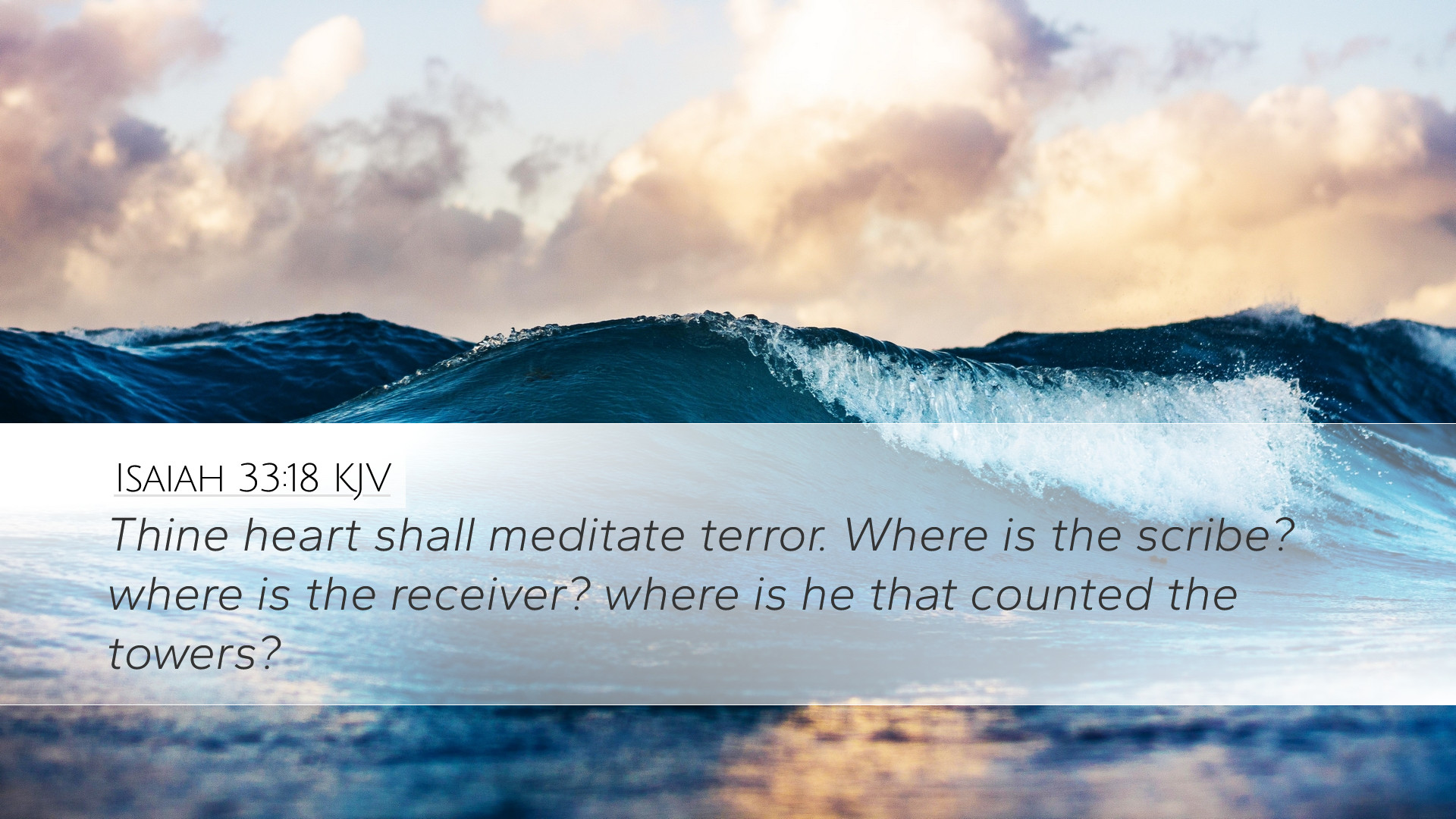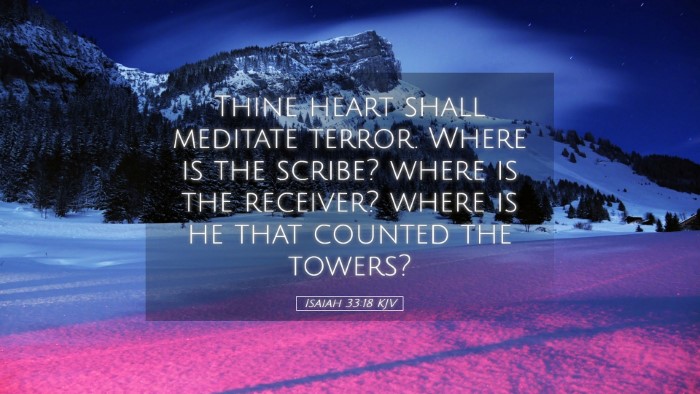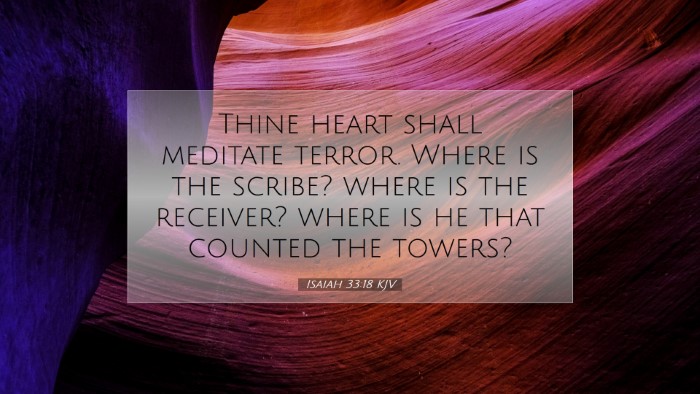Commentary on Isaiah 33:18
Text of Isaiah 33:18 (ESV): "Your thoughts will be tossed to and fro; the fearsome things to come will be thought of, but outside of you there's no other help. You will remember, but the thoughts of your fear will pass away when you see the King in his beauty."
Overview
The verse Isaiah 33:18, nestled in a chapter filled with warnings and promises, serves as a poignant reminder of both the external threats posed by adversaries and the internal fears that can seize the heart of individuals and nations. Within the context of the broader message of Isaiah, this verse outlines the contrast between human anxieties and divine assurance.
Historical Context
The Book of Isaiah often addresses the socio-political landscape of Israel during a tumultuous period marked by Assyrian aggression and internal strife. Chapter 33 illustrates the fear experienced by the people as they confront imminent dangers, but it also emphasizes the reassurance found in trusting God's providential care.
Exegesis and Analysis
Verse Breakdown
- "Your thoughts will be tossed to and fro:" This reflects the agitation and confusion that can overtake the mind in times of crisis. Matthew Henry underscores that when we are faced with severe trials, our thoughts become frantic and unstable; this turmoil is indicative of a lack of peace that only God can provide.
- "the fearsome things to come will be thought of:" The anticipation of future calamities often outweighs the present realities. Albert Barnes notes that human tendencies incline us to dwell upon our fears, leading to anxiety that overwhelms rational thought.
- "but outside of you there's no other help:" This acknowledgement reflects the isolation felt when we turn away from divine support. Adam Clarke interprets this as a clarion call to recognize that all human efforts are futile in the absence of reliance on God.
- "You will remember, but the thoughts of your fear will pass away:" This transition from fear to remembrance of God's presence is crucial. The fear that grips hearts can dissipate upon a true vision of God’s sovereignty and beauty. Here, Clarke emphasizes the transformative power of remembering God's past faithfulness.
- "when you see the King in his beauty:" The vision of God's majesty and holiness is the antidote to fear. Henry suggests that a true gaze upon God's royal splendor brings peace and leads believers away from their anxieties toward worship.
Theological Implications
This verse has significant theological weight. It invites believers to reflect on the nature of their fears in light of God’s sovereignty. The affirmation that there is no other help outside of God highlights a core tenet of faith — total dependence on divine provision amidst chaos. The 'King in his beauty' symbolizes not only God’s majesty but also His mercies, which are often obscured by our fears. The text urges believers to shift their focus from their vulnerabilities to God’s eternal strength.
Pastoral Insights
For pastors, this verse can serve as a pastoral tool for counseling those grappling with fear and anxiety. Encouraging congregants to cast their cares upon the Lord and reminding them of His unchanging nature can provide much-needed comfort. It is critical to lead the faithful to reflect on God’s past interventions in their lives as a means to bolster their present faith.
Applications in Christian Life
- Contemplation: Engage in regular meditation on God’s attributes to cultivate a deeper understanding of His power and love.
- Community Support: Foster environments within church settings where individuals can share their fears and receive prayer and encouragement.
- Scripture Memorization: Encourage the memorization of this verse and others like it to combat the enemy’s lies when anxiety arises.
- Worship as a Response: Promote worship as a direct response to the fears that arise, reminding congregants that through worship, they can encounter the 'King in His beauty.'
Conclusion
Isaiah 33:18 articulates a profound truth about the human condition in times of uncertainty. It calls attention to the need for a shift from anxiety toward an encounter with God’s glory. By embracing the counsel from public domain commentaries, believers, pastors, and theologians can glean valuable insights into how this scripture can remain relevant in our contemporary discourse on fear, faith, and divine assurance.


